Calorie counting for weight loss doesn't work!
Aug 27, 2021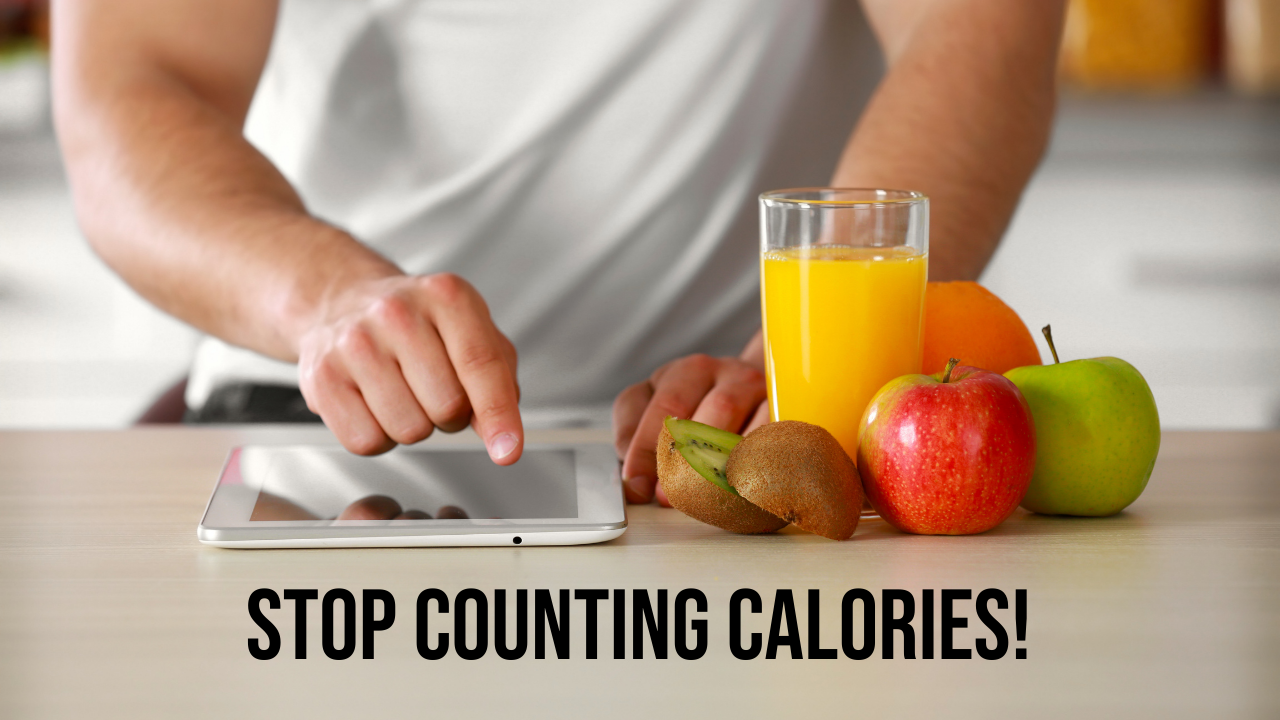
Before I start, the title of this blog is not to provoke the diet and fitness industry practising calorie counting or people that currently use it as a method for weight loss. This blog aims to show you why this simply does not work and how a couple of tweaks to this approach and way of thinking can make all the difference.
I've been personal training clients in Liverpool and Wirral for 20 years and I've used pretty much every method out there to help people lose weight. Some methods have worked better than others but one thing is certain, getting an individual to accurately count calories and maintain it for an extended period has not worked well at all over the long term. I've mentioned this a good number of times over on my YouTube channel so if you prefer watching my rant instead of reading it, head over there. Short term results can easily be achieved using this method, but if your goal is to lose weight and keep it off for life whilst enjoying your lifestyle, counting calories every day is simply not sustainable.

The basis of my argument is as follows:
- The existential crisis of the obesity epidemic we face today
- The practical human application of the Law of Thermodynamics
- Our behaviours and poor ability report our consumption
- The impact of engineered food on our brain and behaviours
- A simple shift in thinking and behaviour in 30 days can change everything
I already sense personal trainers across the land releasing stress hormones from reading the title and their ego's getting ready to attack in their fury that I'm present a methodology they practise which is quite frankly, poor!

To be clear, the law of thermodynamics is unquestionable and energy balance as a fundamental principle of losing or gaining weight remains true. I'm not questioning this fundamental principle, if you're unaware of how this applies to humans the simplistic explanation is, if you consume more energy (calories) than you expend then you'll gain weight and if you expend more energy than you consume you'll lose weight. The principle is incredibly simplistic however, the application is a completely different ball game!
- The existential obesity crisis
Despite the fact we have known for decades how weight loss/gain takes place and the truthful but useless advice of move more and eat less, the western obesity rates have skyrocketed over the last 30 years.
The illustrations below from Public Health England present the staggering statistics of where we are today. The adult data are shown in the first image although, it's not good news, these stats may not surprise you. Take a look at the statistics on childhood obesity in the second illustration and it paints a sad picture of where we are heading in the future.
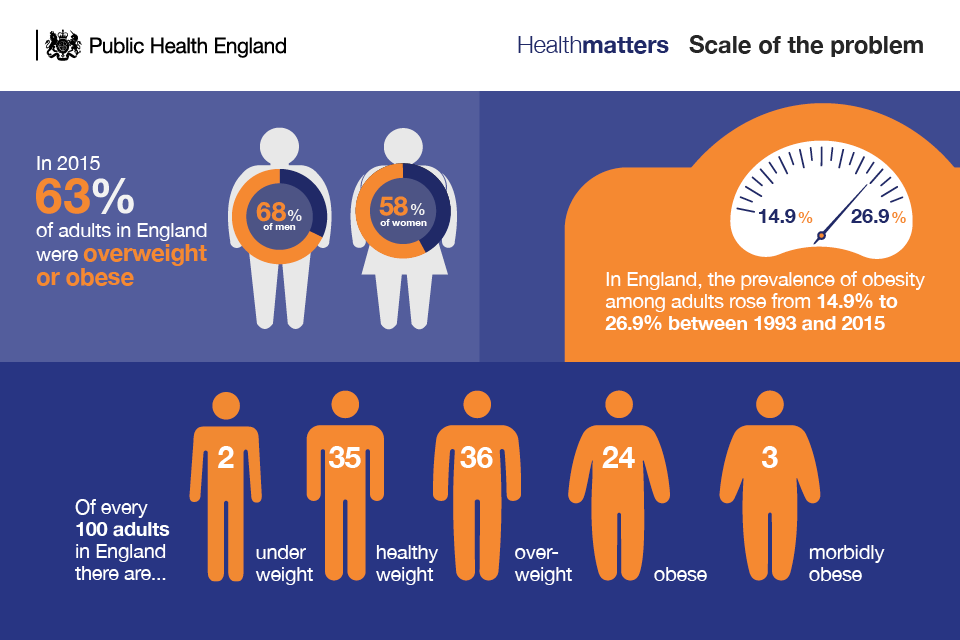

With the recent dramatic increase in the adult population and the appalling reality of almost 30% of childer under 15 are overweight obese in the UK, a serious question needs to be asked why the old weight loss advice that is simplistic, isn't working.
- Practical application of the law of thermal dynamics
A home personal training client of mine on the Wirral recently encountered the typical problem when using the calorie counting method to lose weight. She knows the basic principle and started to increase her exercise and drop her calorific intake. Rebecca still wanted to maintain her social life at the weekends and allowed for this by dramatically reducing her calorie intake from food over the weekend to allow for drinks and likely hood of a meal with friends.
Although I told her this was a bad strategy, Rebecca was driven by the numbers and so long as she saw the scales come down and linked that to the numbers of calories she consumed each day, in her mind, she felt this would work best. Soon after she runs into the wall of disappointment!
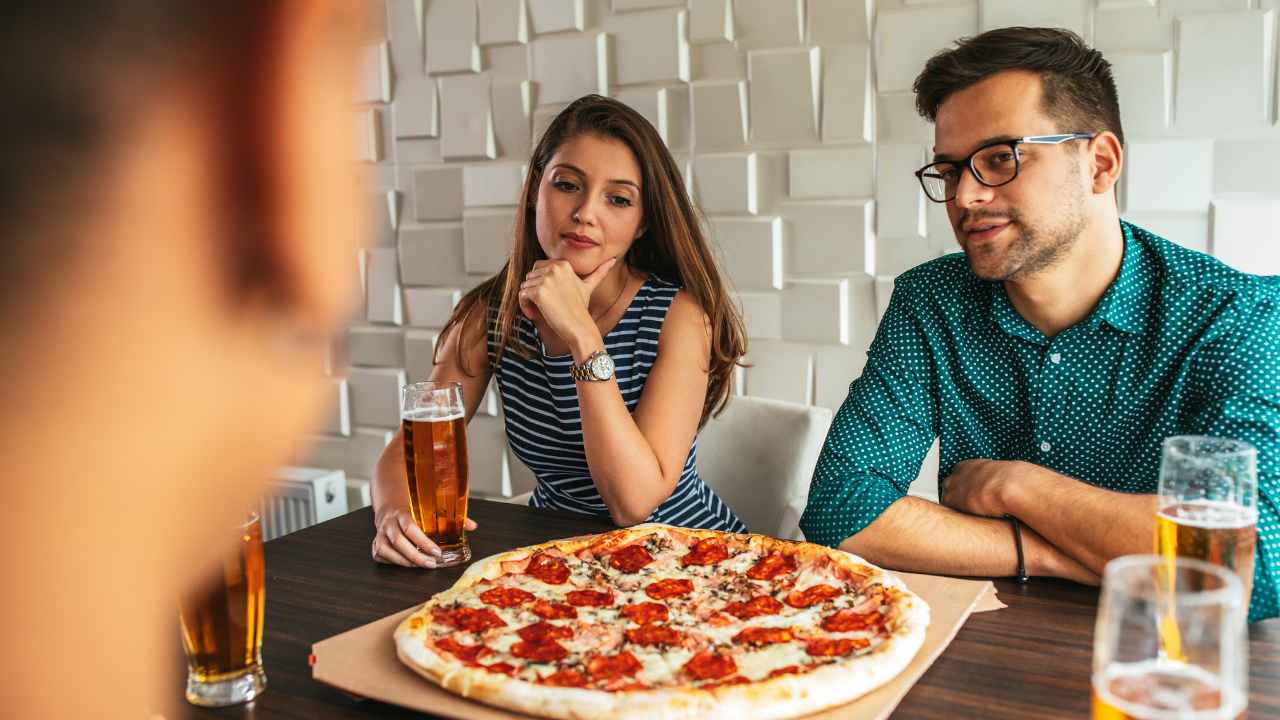
Rebecca had lost weight over the 8 weeks, she had been working hard exercising and cutting down on calories but also keeping her social engagements too. She experienced the high of losing weight but things started to unwind. Rebecca started to lose energy as her nutritional intake had been reduced and she was lacking in numerous key nutrients, her fatigue levels were high and her willingness to exercise and performance in training was low. As her metabolism started to slow down with her weight loss, she had to work harder to keep the results going.
Four weeks later, Rebecca stopped losing weight and felt physically, mentally and emotionally drained as she could not keep the process going. Not only that, she felt defeated because her hard work was not paying off. Many trainers at this point would introduce diet breaks to positively influence the metabolism, for me, this is just not a sustainable method for an individual to be doing for the rest of their lives…. So why teach it?
Rebecca's outcome is typical in the weight loss world, the yoyoing of weight and diet is the outcome of this approach towards weight loss. Below is an illustration of the energy expenditure components and the typical approach many trainers and nutritionists follow with their clients.
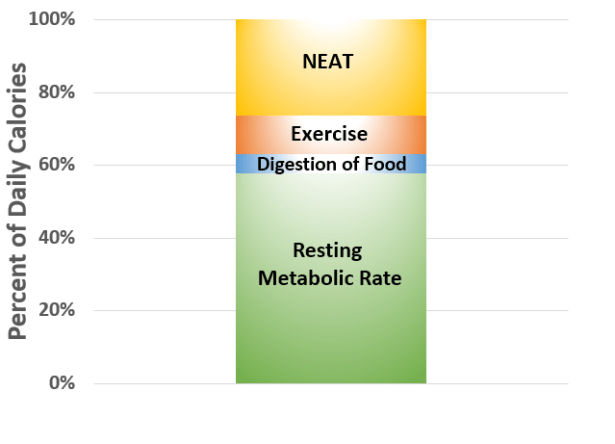
Resting Metabolic Rate (RMR or BMR) – This is the total amount of energy the body uses for its normal daily metabolic process and where the highest amount of energy is expended.
Problem – Determining your exact BMR is difficult, the only accurate way to establish it accurately would be to visit a metabolic ward or do a metabolic threshold test at a sports science university… Good luck with that! The online calculators can be up to 20% inaccurate when determining what your BMR is, although it's a good place to at least start be aware, it will most likely be incorrect.
The other issue with BMR is the adjustment when your body composition changes, the more weight you lose the less energy you burn, however, the flip side to this is, if you gain more lean muscle you will INCREASE the amount of energy you burn. And to add a final layer of complexity, this will change daily depending on your environment, temperature and exposure to stress etc.
Thermal Effect of Food (TEF / Digestion) – The composition of macronutrients differs with some nutrients requiring more energy or less than others to digest. Protein sources have the highest thermal effect making them a good choice for weight loss.
Problem – The energy calculation in food from burning can also be inaccurate by up to 25% so what you read on the label will also likely be inaccurate. The 2nd part of this issue is the number of calories your body will utilise, depending on the amount and quality of your gut bacteria will also influence how much of the energy you consume is digested and passed to waste.
Exercise Activity Thermogenesis (EAT) - You will know this one well. The simple equation of how much energy you burn from deliberate exercise. Sessions in the gym, running, swimming etc. Depending on how much exercise you do, this will only equate to approx 10-15% of your daily energy expenditure. Please note, over the long term, the impact of exercise will positively impact your RMR allowing you to burn more energy at rest… So long as you do it right!
Side note – To explore how exercise can be far more effective than diet then have a read of this article here
Problem – Fitness trackers have also been shown to overestimate by up to 20% how many calories your burn from exercise. So when using your fitness trackers be also aware of this probable inaccuracy.
Non-Exercise Activity Thermogenesis (NEAT) – NEAT is the small physical activity of your body throughout the day, the tiny movements like tapping your foot under the desk, typing on the keyboard and even blinking are classed as NEAT and add to a significant portion of your daily energy expenditure.
Problem – This will greatly vary depending on what you are doing during the day and how you are feeling. If you feel tired you'll be less likely to move more, stressed, you could be agitated and constantly moving (depending on how you respond to stress), or even, your mindset. If you're a positive thinker you'll be more enthusiastic about things and more likely to move more than a negative thinker. You could even swing between both these mindsets depending on your psychology therefore, you can see how this too will vary and never be the same daily.

Although physics looks great, the application to everyday people in the real world is hardly practical. Good luck taking all of the above into account when trying to lose weight.
- Our behaviours and poor ability to report our consumption
I can't tell you how many times clients have told me over the years that they are hardly eating anything but still gaining weight or not lost any. Although most people do try hard, there are several things they will often forget like the Starbucks latte's on the way to work or the alcohol consumed at the weekend, or the handful of salted peanuts they grab in the office. All of these things add up, and along with this comes the shame of admitting (recording) when you've eaten garbage. Very rarely do people take responsibility for the 3 chocolate bars and a glass of wine they consumed after the pizza on Saturday night.
A study published in 2016 by Behavioural Insights Team produced evidence showing the UK population is under-reporting their calorific intake by approx 30%. You can see this report here
If we look at how we behave, our consumption of food can become a subconscious action. Sometimes, eating can even become a reflex response if we are hungry and the mind is occupied with bigger emotional events happening then.
The truth is, we are not very good at tracking everything we eat and checking the numbers every time we go to consume anything has been shown to become a stressful event in itself. So if tracking becomes stressful and our eating behaviours can at times be subconscious then why is there STILL a continued focus on trying to do it when our human behaviours don't align with it?
Your mindset and ability to control your emotions play a significant part in this process, to take a deeper look at how a good mindset and emotional control play a key role in achieving your goals click here.
- The impact of engineered food on our brain and behaviours
Now, for even more bad news! The food industry has become masters of human behaviour science, they are quite frankly, 20 years ahead of the Fitness industry.
Psychophysicist, Howard Moskowitz is well known in the food industry for his pioneering work on food taste optimisation. He used the term 'bliss point', as the sensory profile where you like the food most. The bliss point is a range in which the perfect blend of sugar, salt and fat reach a point of not too sweet or salty, and perfect on the palate. The combination of these ingredients become far more powerful than the ingredients alone, this magical blend creates a huge dopamine (reward chemical) response in the brain which, creates a positive feeling when you see, smell or are about to taste these foods.
Hyper palatable food has been perfected by the food industry, to give you a simple example, think about the last time you went to a restaurant for a meal. Whatever your choice, you probably reached a stage of feeling satisfied or too full when you finished. Your brain signals to let you know you've had enough and thought of another bite would send you over to nausea. Despite the fact your internal mechanisms indicating clearly that you are full, the dessert menu comes out, and you spot the cheesecake (a personal favourite), you know you're full but, there is always room for cheesecake!
How is it, that our internal system can tell us we are full and no more food is required but we can still manage to throw down another 1000 calories of delightful cheesecake? When scientists, behavioural specialists and the food industry come together, this is what happens. We live in an age where our food is so engineered to the degree that we feel negative pain (craving) when we don't eat these foods and feel immense pleasure when we do. This is manipulation at its finest, and when you are on a fat loss journey counting your calories, you'll find your week of hard work destroyed in just one meal.
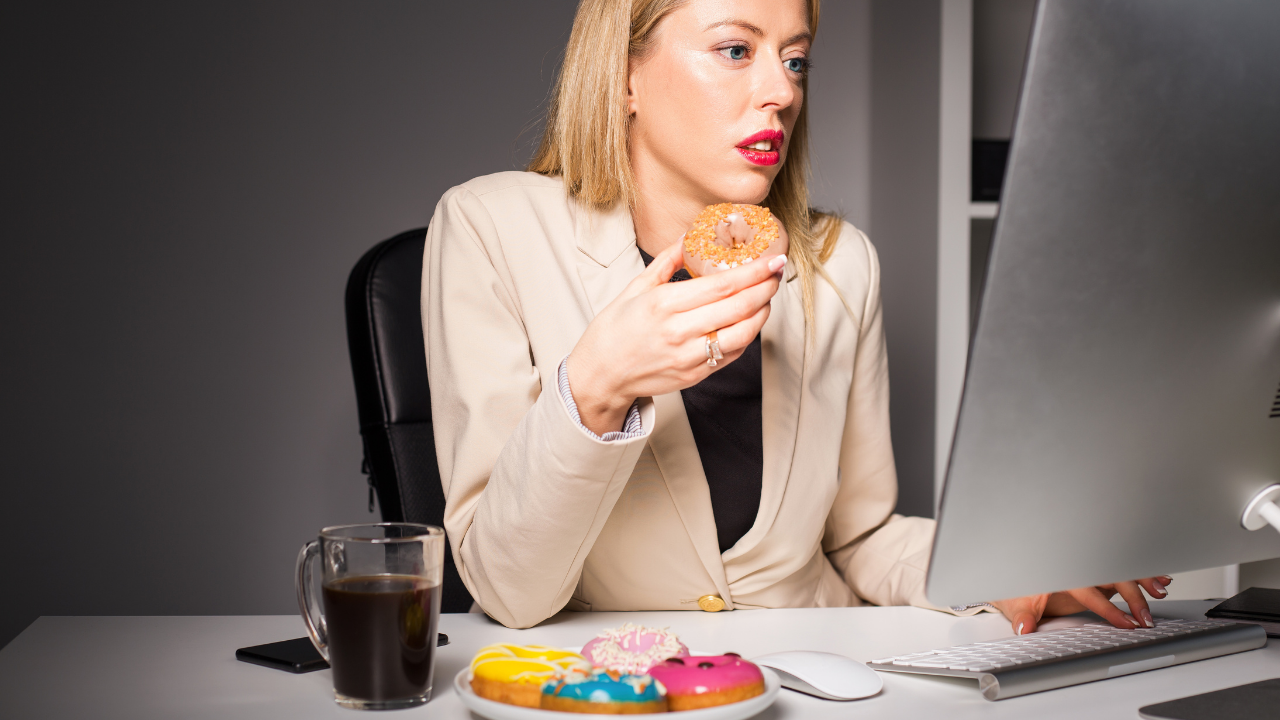
If you're not focused on the quality of your foods and simply just eating what you want so long as you’re in a calorific deficit, you'll find this to be a painful experience. It's like asking an alcoholic to sit in a brewery for a day and only have 2 drinks. What chance is there of that happening, very little, and the same goes for trying to stop yourself from overeating the highly palatable foods you're consuming.
After all of this you may be thinking, what's the point in even trying!
To be honest, you'd be right to think that and hence, why most people fail trying to use the calorie counting method. The odds are stacked heavily against you with all the variables and changes required to be even close to accurate!
But, fear not! There are plenty of other ways in which you can navigate the world of losing weight, keeping healthy whilst also keeping your sanity!
- A simple shift in thinking and behaviour in 30 days can change everything
Ok, so although I said a simple shift in thinking and behaviour in 30 days can change everything, there will be a difficult couple of weeks during the 30 days. There are many approaches you can take to make your fat loss journey easier and if you’re a regular reader of my blog you’ll know I write on numerous ways we can achieve our goals by using the most effective methods. This is one, is a fast but incredibly effective tool you can use to be in control of your own impulses allowing for an easier weight loss journey. If you want to look at numerous strategies to manage bad habits take a look at this blog here
Addiction expert Anna Lembke has shown in her clinical practice and according to some research papers, that the dopamine pleasure and pain ratio can be re-balanced in just 30 days of complete deprivation of the addictive thing triggering our impulsive behaviours.
From observations of my behaviours and my clients over the years, this certainly seems to be true.
Identifying one thing that is causing you the biggest problem when trying to lose fat or achieve any other goal and completely depriving yourself of it for a 30 day period is a powerful way of overcoming your biggest hurdles.
The first couple of weeks of complete deprivation of something you enjoy is going to be painful, this is the brains pain (craving) response to the thing that brings the impulsive pleasure. By gritting your teeth and moving through the process, this craving reduces after 2 weeks and things get better. After 4 weeks, you're in a state where that thing that drives your impulses no longer has the same power it once did. Once you reach this point, you are now in control of your behaviour and if you do decide to eat the chocolate cake, it's because you have decided to do based upon a conscious decision and not because of an urge… there's a complete difference!
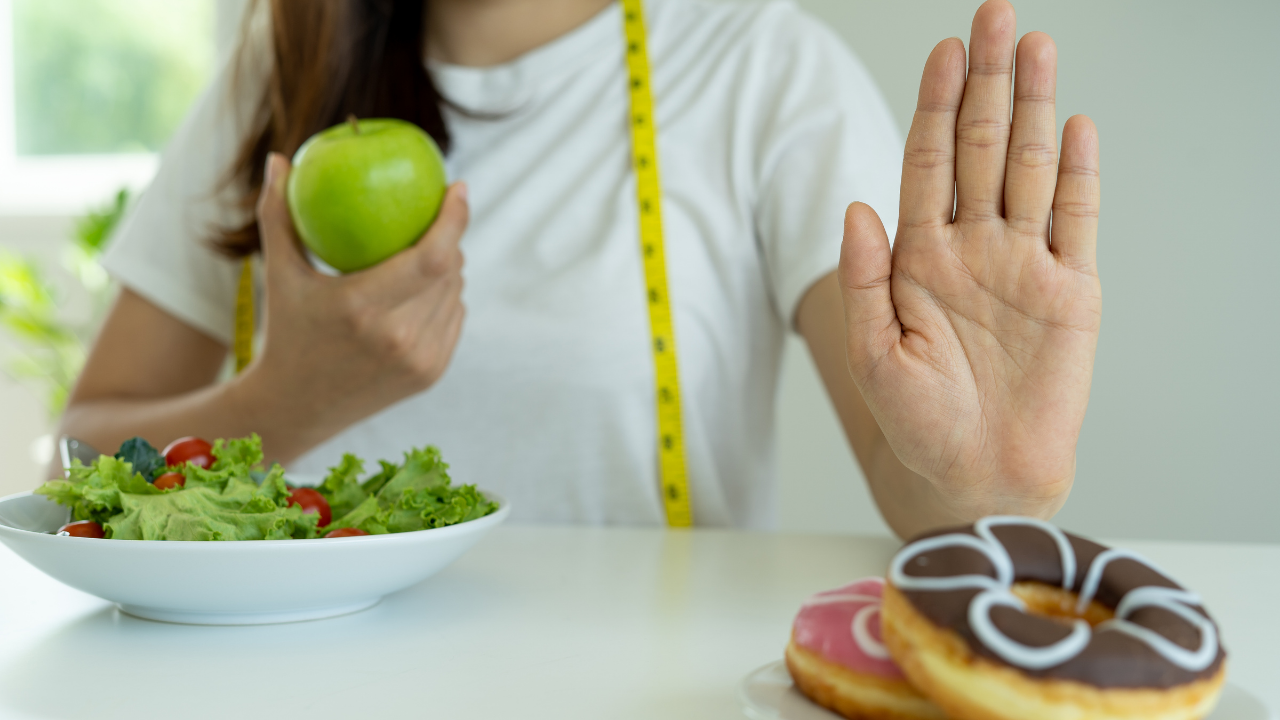
Does this sound like an oversimplification?
The thing for you to do from reading this blog is to go and try it for yourself. Have a look at a bad habit you have, alcohol, chocolate, smoking etc. Whatever your poison, give yourself a 30-day challenge and completely deprive yourself of that thing for 30 days. I can promise you, you'll be shocked at the outcome of how you feel in such a short space of time.
If you want to do this within a supportive community then feel free to join my 30 Day Body Blitz Community and achieve a transformation in just 30 Days
Once you've done it, you'll soon feel in complete control of your urges. You will be in the liberated position of, take it or leave it. The thing will no longer have a powerful hold of you, instead, you'll have the freedom to behave the way you intend to achieve your goals and the stress of managing those bad habits will cease to exist.
Stay connected with news and updates!
Join our mailing list to receive the latest news and updates from our team.
Don't worry, your information will not be shared.
We hate SPAM. We will never sell your information, for any reason.

